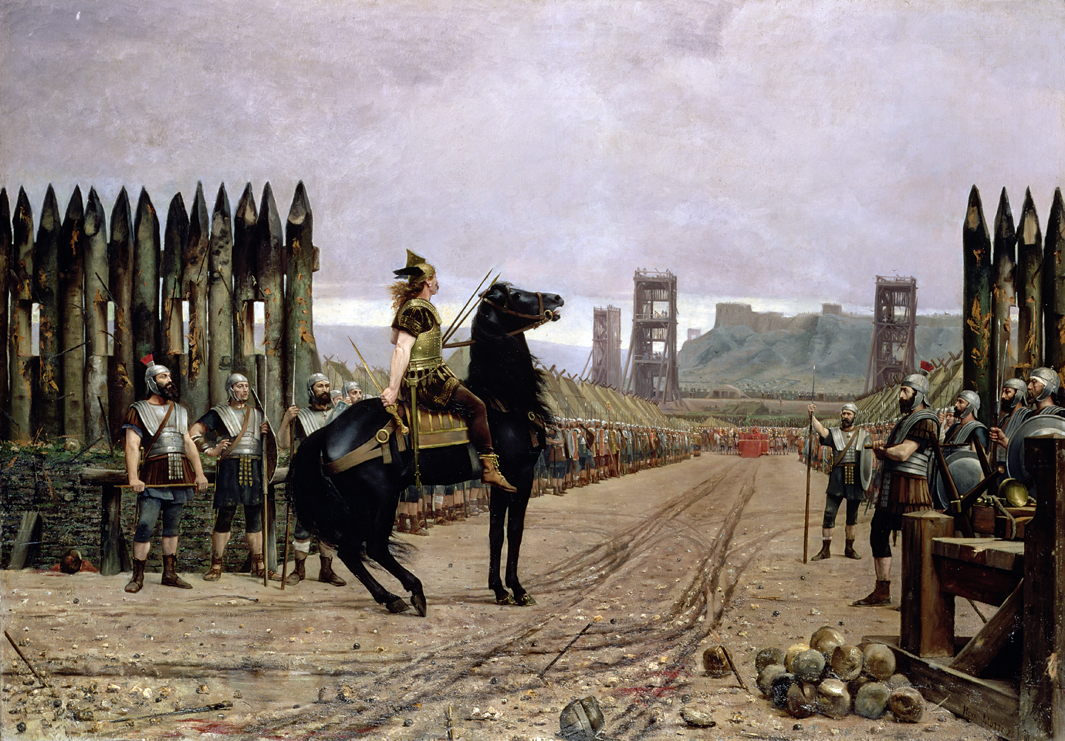Who draws his sword against his prince must throw away the scabbard.
—James Howell, 1659The Best Fence Against Rebellion
John Locke finds power in the people.
The reason why men enter into society is the preservation of their property, and the end why they choose and authorize a legislative is that there may be laws made, and rules set, as guards and fences to the properties of all the members of the society, to limit the power and moderate the dominion of every part and member of the society.
Whenever the legislators endeavor to take away and destroy the property of the people, or to reduce them to slavery under arbitrary power, they put themselves into a state of war with the people, who are thereupon absolved from any further obedience and are left to the common refuge, which God hath provided for all men, against force and violence. Whensoever, therefore, the legislative shall transgress this fundamental rule of society and either by ambition, fear, folly, or corruption endeavor to grasp themselves, or put into the hands of any other, an absolute power over the lives, liberties, and estates of the people—by this breach of trust they forfeit the power the people had put into their hands for quite contrary ends, and it devolves to the people, who have a right to resume their original liberty and, by the establishment of a new legislative (such as they shall think fit), provide for their own safety and security, which is the end for which they are in society. What I have said here concerning the legislative in general holds true also concerning the supreme executor, who having a double trust put in him—both to have a part in the legislative and the supreme execution of the law—acts against both when he goes about to set up his own arbitrary will as the law of the society.
To this, perhaps it will be said that, the people being ignorant and always discontented, to lay the foundation of government in the unsteady opinion and uncertain humor of the people is to expose it to certain ruin—and no government will be able long to subsist if the people may set up a new legislative whenever they take offence at the old one. To this I answer, quite the contrary. People are not so easily got out of their old forms as some are apt to suggest. They are hardly to be prevailed with to amend the acknowledged faults in the frame they have been accustomed to. And if there be any original defects or adventitious ones introduced by time or corruption, it is not an easy thing to be changed, even when all the world sees there is an opportunity for it. This slowness and aversion in the people to quit their old constitutions has, in the many revolutions which have been seen in this kingdom in this and former ages, still kept us to, or, after some interval of fruitless attempts, still brought us back again to our old legislative of king, lords, and commons; and whatever provocations have made the crown be taken from some of our princes’ heads, they never carried the people so far as to place it in another line.
But it will be said, this hypothesis lays a ferment for frequent rebellion. To which I answer:
First, no more than any other hypothesis, for when the people are made miserable and find themselves exposed to the ill usage of arbitrary power, cry up their governors as much as you will, for sons of Jupiter, let them be sacred and divine, descended, or authorized from heaven—give them out for whom or what you please, the same will happen. The people, generally ill treated and contrary to right, will be ready upon any occasion to ease themselves of a burden that sits heavy upon them.
Secondly, I answer, such revolutions happen not upon every little mismanagement in public affairs. Great mistakes in the ruling part, many wrong and inconvenient laws and all the slips of human frailty will be born by the people without mutiny or murmur. But if a long train of abuses, prevarications, and artifices all tending the same way make the design visible to the people, and they cannot but feel what they lie under and see whither they are going, it is not to be wondered that they should then rouse themselves and endeavor to put the rule into such hands which may secure to them the ends for which government was at first erected.
Thirdly, I answer, that this doctrine of a power in the people of providing for their safety anew, by a new legislative, when their legislators have acted contrary to their trust by invading their property, is the best fence against rebellion, and the probablest means to hinder it; for rebellion being an opposition not to persons but authority, which is founded only in the constitutions and laws of the government; those, whoever they be, who by force break through and by force justify their violation of them, are truly and properly rebels—for when men, by entering into society and civil-government, have excluded force and introduced laws for the preservation of property, peace, and unity among themselves, those who set up force again in opposition to the laws, do rebellare—that is, bring back again the state of war, and are properly rebels. Which they who are in power (by the pretense they have to authority, the temptation of force they have in their hands, and the flattery of those about them) being likeliest to do, the properest way to prevent the evil is to show them the danger and injustice of it, who are under the greatest temptation to run into it.

Vercingetorix Before Caesar, by Henri-Paul Motte, 1886. Vercingetorix led the last uprising of the Gallic peoples against Julius Caesar in 52 bc before the complete subjugation of Gaul. Musée Crozatier, Le Puy-en-Velay, France. Giraudon, The Bridgeman Art Library.
But if they who say it lays a foundation for rebellion mean that it may occasion civil wars or intestine broils, to tell the people they are absolved from obedience when illegal attempts are made upon their liberties or properties and may oppose the unlawful violence of those who were their magistrates, when they invade their properties contrary to the trust put in them—and that therefore this doctrine is not to be allowed, being so destructive to the peace of the world—they may as well say upon the same ground that honest men may not oppose robbers or pirates because this may occasion disorder or bloodshed. If any mischief comes in such cases, it is not to be charged upon him who defends his own right but on him that invades his neighbors. If the innocent, honest man must quietly quit all he has for peace’s sake, to him who will lay violent hands upon it, I desire it may be considered what a kind of peace there will be in the world, which consists only in violence and rapine; and which is to be maintained only for the benefit of robbers and oppressors.

John Locke
From Two Treatises on Government. Locke was made a fellow of the Royal Society in 1668; one of his few contributions to its journal, Philosophical Transactions, was a letter on a Bahamian fish. He defined political power as the “right of making laws with penalties of death, and consequently all less penalties, for the regulating and preserving of property, and of employing the force of the community, in the execution of such laws and in defense of the commonwealth from foreign injury, and all this only for the public good.”




